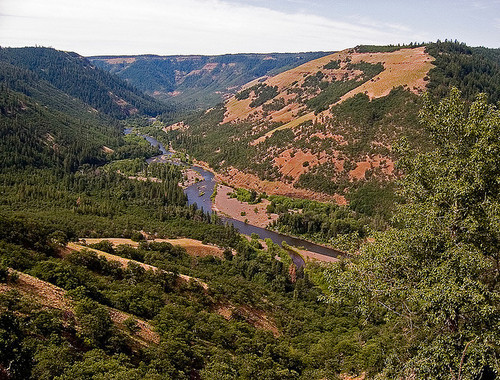
Imagine taking a stroll alongside a rushing river or watching the waves dash the rocks of a saltwater cove. Scenic properties like this are in high demand for development, causing public access to be threatened.
However, thanks to your vocal support for the Land and Water Conservation Fund (LWCF), Congress passed a funding bill that will keep two Washington forests safe.
The $306 million for the LWCF included in the recent Federal Appropriations bill will protect some of the nation’s most iconic places, enhance local economies and increase access to recreation.
LWCF will protect approximately 9,000 acres of working forestland and 5.2 miles of habitat and recreation lands along the Klickitat Wild and Scenic River and a large swath of the Pysht Coastal Forest near Port Angeles in an area popular with anglers.
“This program is all about empowering communities to protect the outdoor places they love,” said Hannah Clark, LWCF campaign director at the Washington Wildlife and Recreation Coalition. “It’s incredibly exciting to see LWCF dollars come through this year to invest in our best places. But the growing backlog of unfunded projects shows yet again why full, dedicated funding for LWCF is needed.”
The Klickitat Canyon Forest has been in timber management for more than 70 years and is critically important to the local economy. Because of the sensational river canyon, Cascade mountain views and plentiful recreational opportunities, this property is vulnerable to development which would restrict public access and block mule deer migration, in addition to the loss of forestry jobs essential to the local economy.
As a secret gem of the Olympic Peninsula, the Pysht Coastal Forest is a productive working forest, easily accessible from the highway with fantastic coastal views. This money will help protect its critical salmon spawning habitat.
“Conservation easements through LWCF are all about conserving land while keeping it in private ownership,” said Clark. “That means that jobs in the woods and spectacular lands for recreation and habitat will be protected for future generations.”
These projects help maintain diverse and productive privately-owned working forests so that future generations can benefit from our abundant natural resources.
Despite the funding shortfalls LWCF faces every year, this continued bipartisan support shows an incredible amount of demand for conservation funding in the US. Pysht and other LWCF projects often are left waiting year after year for funding, making this grant all the more exciting. The House appropriations proposal last year included no funding for LWCF. We must continue to champion protection for our outdoor heritage as the program approaches its 50th anniversary.
Photo by pfly
